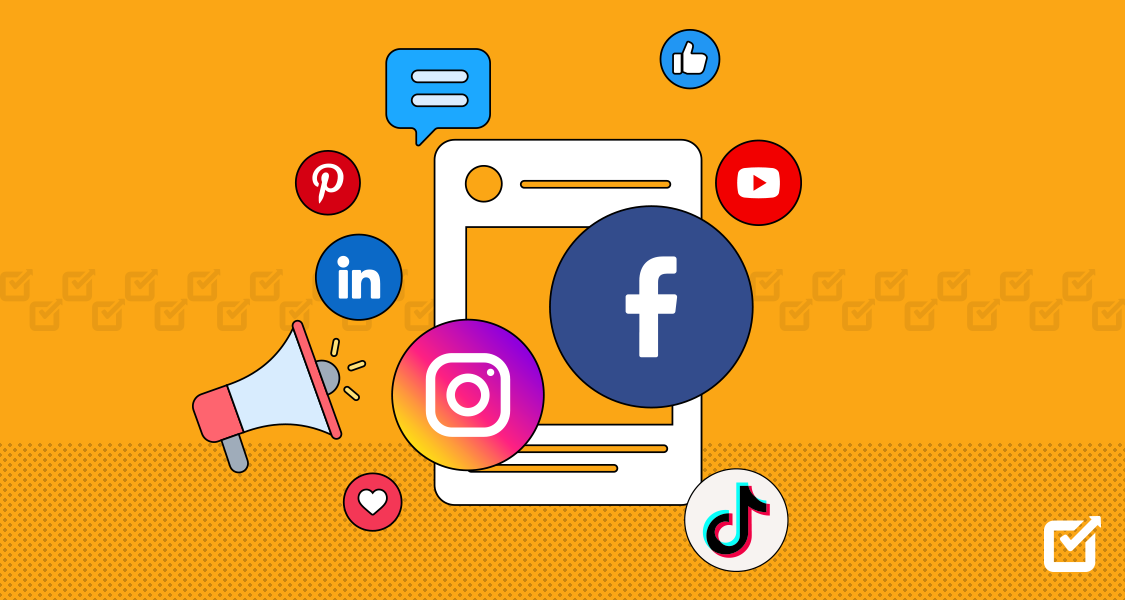The major social media platforms each have distinct characteristics, user bases, and purposes. Here’s a breakdown of the primary differences between some of the most popular platforms:

1. Facebook
- Purpose: General-purpose social networking platform.
- Primary Users: Wide range of age groups (especially popular with users aged 25-55).
- Content: Text, photos, videos, live streams, links, events.
- Features: News Feed, groups, Marketplace, events, messaging (via Messenger).
- Tone: Mixed — personal updates, community engagement, news, business promotions.
- Focus: Connecting friends and family, sharing life updates, discovering events, buying/selling locally.
- Unique Aspect: Highly versatile platform with a variety of tools (advertising, pages, groups, etc.).
2. Instagram
- Purpose: Visual content sharing.
- Primary Users: Younger audiences (mainly 18-34), influencers, brands, and creatives.
- Content: Photos, short-form videos, stories (temporary posts), Reels (short-form video), carousels (multiple images in a post).
- Features: Stories, direct messaging, Explore page, IGTV (longer videos), shopping.
- Tone: Highly visual, aspirational, curated.
- Focus: Lifestyle, beauty, fashion, travel, fitness, art, and personal branding.
- Unique Aspect: Emphasis on aesthetics, personal branding, and influencer marketing.
3. Twitter (X)
- Purpose: Microblogging and real-time news and discussions.
- Primary Users: Professionals, journalists, politicians, influencers, news junkies.
- Content: Short text posts (tweets), photos, videos, links, polls.
- Features: Hashtags, trending topics, retweets, replies, lists, spaces (audio chats).
- Tone: Informal, fast-paced, conversational, news-driven.
- Focus: Real-time updates, political commentary, social movements, networking, entertainment.
- Unique Aspect: 280-character limit encourages concise, fast communication; ideal for breaking news, debates, and viral trends.
4. LinkedIn
- Purpose: Professional networking and career development.
- Primary Users: Professionals, job seekers, businesses, recruiters.
- Content: Professional updates, industry news, articles, resumes, job postings.
- Features: Connections, endorsements, recommendations, job search, professional groups.
- Tone: Formal, career-oriented, business-focused.
- Focus: Networking, thought leadership, job hunting, skill building, industry news.
- Unique Aspect: The primary platform for professional networking and career-related content.
5. TikTok
- Purpose: Short-form video entertainment and content creation.
- Primary Users: Young adults and teens (16-24), but growing in popularity across age groups.
- Content: Short videos (15 seconds to 3 minutes), typically music-based, lip-sync, dances, challenges, memes, skits.
- Features: For You Page (FYP), duets, stitches, filters, challenges, live streaming.
- Tone: Fun, playful, spontaneous, and highly creative.
- Focus: Entertainment, creativity, trends, viral content, and influencer-driven marketing.
- Unique Aspect: Algorithm-driven discovery of content, viral trends, and short-form video format with easy editing tools.
6. Snapchat
- Purpose: Ephemeral multimedia messaging and content sharing.
- Primary Users: Teens and young adults (13-34).
- Content: Photos and videos that disappear after being viewed, Stories, filters, augmented reality (AR) effects.
- Features: Stories, Snap Map, Discover, chat, streaks, Lenses (AR filters).
- Tone: Casual, private, playful.
- Focus: Temporary, private sharing of moments with friends, AR effects, playful content.
- Unique Aspect: Ephemeral content, heavy use of AR features, and the emphasis on private communication.
7. YouTube
- Purpose: Video content sharing and viewing platform.
- Primary Users: Broad demographic, with high engagement across various age groups.
- Content: Long-form videos, vlogs, tutorials, music videos, live streams, reviews, documentaries.
- Features: Comments, channels, subscriptions, monetization (ads, memberships), live streaming.
- Tone: Varied (informal, educational, entertainment).
- Focus: Entertainment, education, DIY, hobbies, reviews, gaming, and professional content creators.
- Unique Aspect: The go-to platform for long-form video content, with a massive user base and creator ecosystem.
8. Pinterest
- Purpose: Visual discovery and inspiration platform.
- Primary Users: Predominantly women, especially in the 18-50 age range.
- Content: Pins (images or videos), boards, infographics, DIY ideas, recipes, fashion.
- Features: Pinning, boards, Shopping, Idea Pins (short-form video).
- Tone: Inspirational, aspirational, lifestyle-driven.
- Focus: Inspiration for projects, life planning (weddings, home decor, recipes, etc.), creativity.
- Unique Aspect: Strongly focuses on visual discovery for future planning, DIY, and lifestyle.
9. Reddit
- Purpose: Discussion-based content aggregation.
- Primary Users: A mix of casual users and deep niche communities.
- Content: Text posts, links, images, and discussions organized by subreddits.
- Features: Upvoting/downvoting, comments, karma system, subreddit communities, AMAs (Ask Me Anything).
- Tone: Informal, conversational, often meme-driven or sarcastic.
- Focus: Community-based discussions, niche interests, Q&A, advice, news, and memes.
- Unique Aspect: Communities (subreddits) centered around very specific interests or topics.
Key Takeaways:
- Content Focus: Platforms like Instagram, TikTok, and Pinterest are visually driven, while Twitter and Reddit are more text-oriented. Facebook offers a broad mix of content types.
- Audience: Facebook has a broad, older demographic; Instagram, TikTok, and Snapchat cater more to younger users. LinkedIn is the go-to platform for professionals.
- Purpose: LinkedIn is for career development, TikTok for short-form entertainment, and Facebook for community and family engagement. YouTube is the hub for long-form video content, while Twitter (X) excels at real-time updates and discussions.
Each platform excels in different ways, and users typically tailor their content based on the platform’s strengths and their target audience.
4o mini